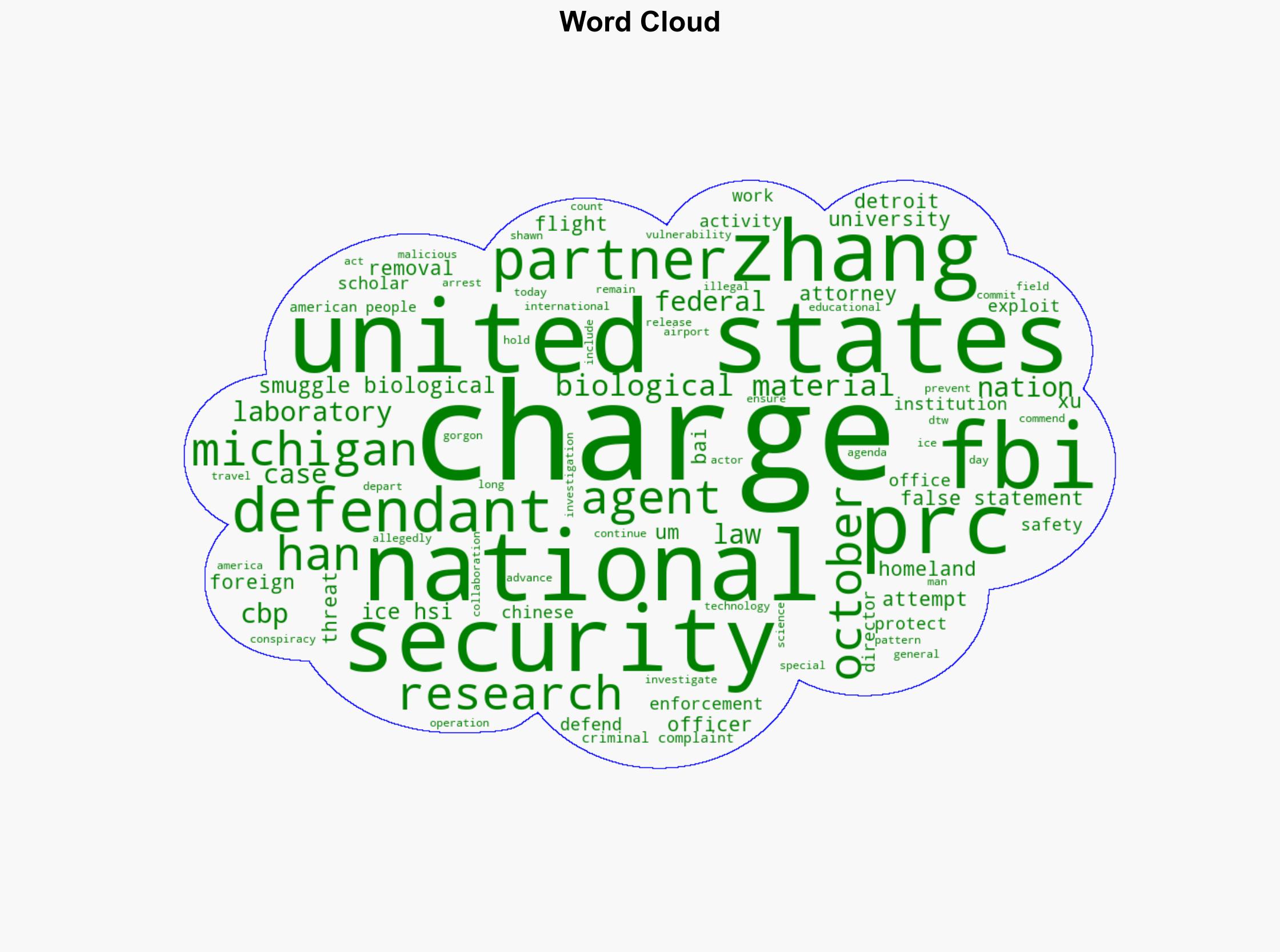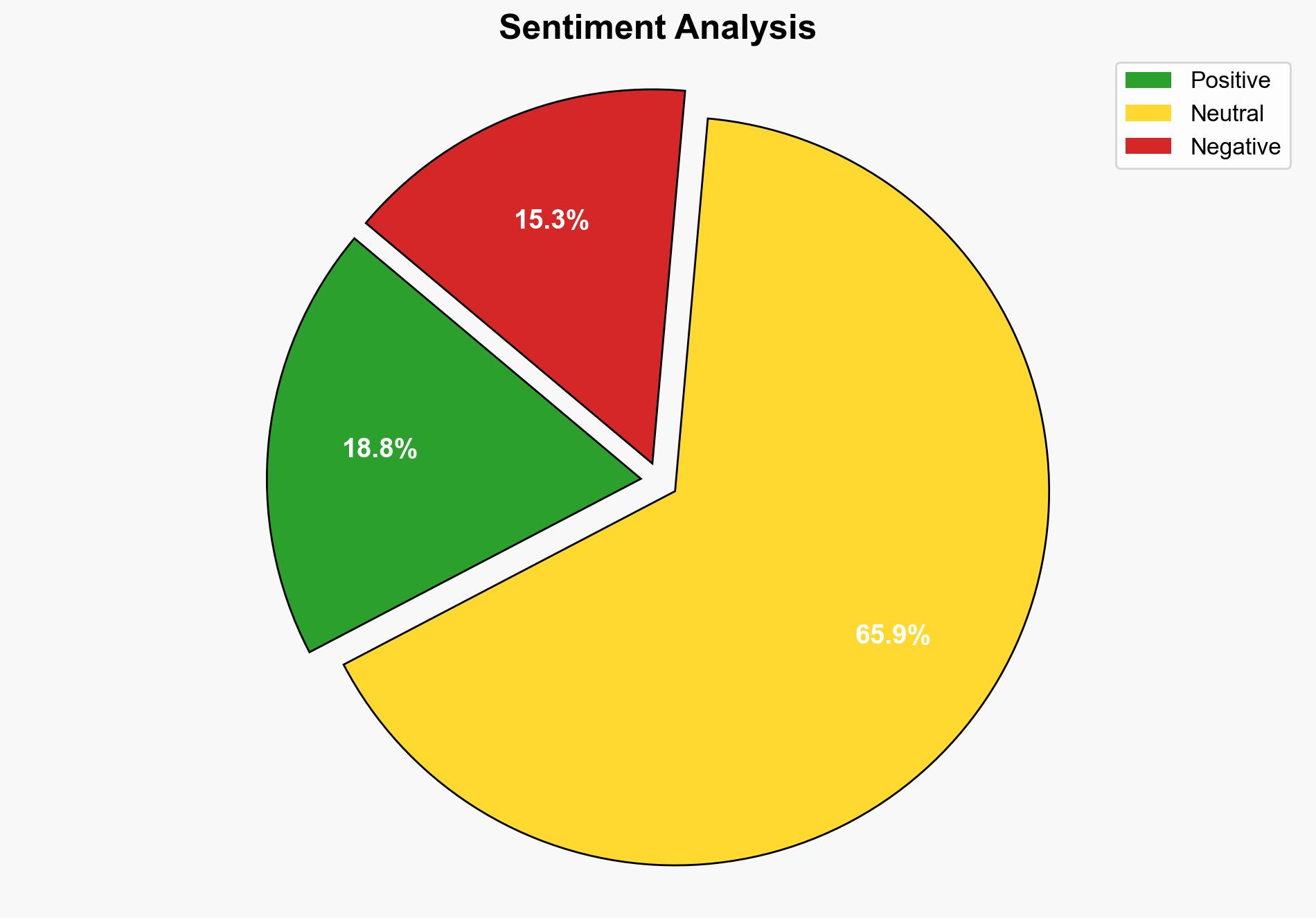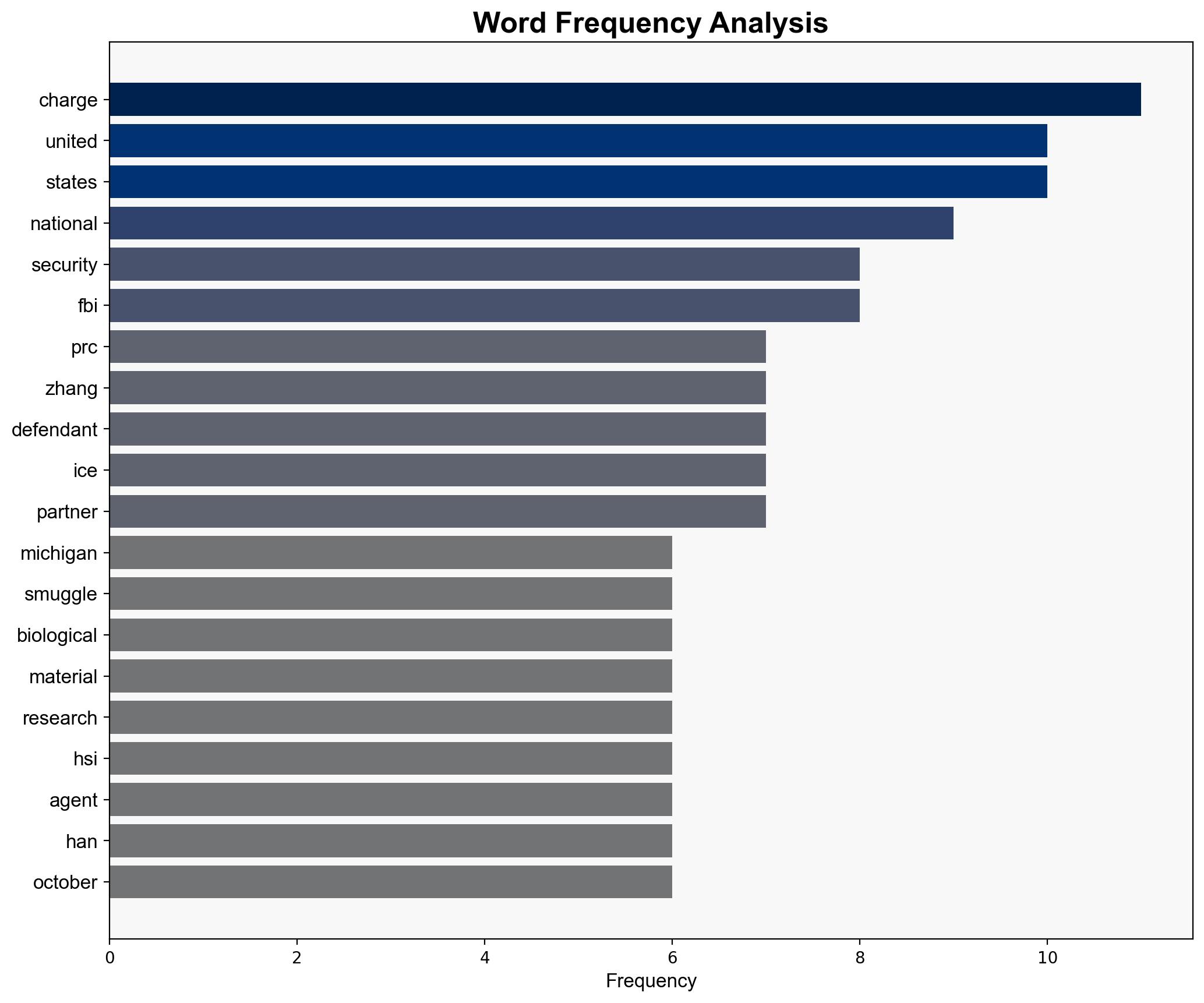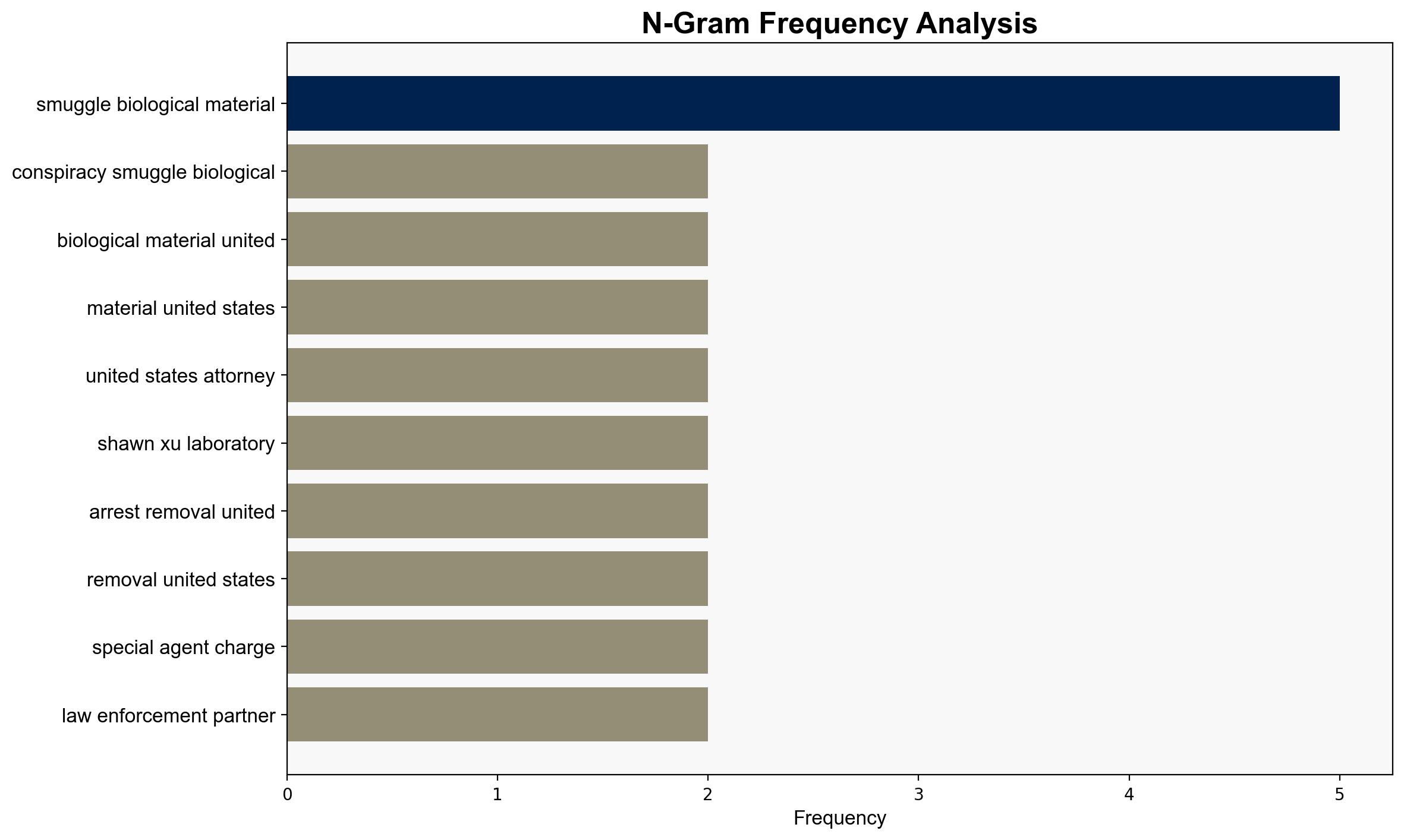Three Chinese National Scholars from University of Michigan Laboratory Charged for Conspiring to Smuggle Biological Materials into the US – Globalsecurity.org
Published on: 2025-11-06
Intelligence Report: Three Chinese National Scholars from University of Michigan Laboratory Charged for Conspiring to Smuggle Biological Materials into the US – Globalsecurity.org
1. BLUF (Bottom Line Up Front)
The most supported hypothesis is that the individuals involved were part of a coordinated effort to illicitly transfer biological materials, potentially for unauthorized research or espionage purposes. Confidence in this assessment is moderate due to the pattern of behavior and previous similar incidents. Recommended action includes tightening oversight on international research collaborations and enhancing scrutiny of foreign scholars in sensitive fields.
2. Competing Hypotheses
1. **Coordinated Espionage Effort**: The charged individuals were knowingly participating in a coordinated effort to smuggle biological materials for espionage purposes, possibly under the direction of a foreign state.
2. **Isolated Academic Misconduct**: The individuals acted independently, driven by personal academic ambitions or financial incentives, without direct state involvement or broader espionage objectives.
Using Analysis of Competing Hypotheses (ACH), the first hypothesis is better supported by the pattern of behavior, the involvement of multiple individuals, and the nature of the materials involved, which align with known espionage tactics.
3. Key Assumptions and Red Flags
– **Assumptions**: It is assumed that the biological materials have significant research or strategic value. Another assumption is that the individuals had the capability and intent to smuggle these materials.
– **Red Flags**: The rapid departure attempts and false statements to federal agents suggest possible guilt or fear of repercussions. The lack of detailed information on the exact nature of the biological materials is a critical gap.
4. Implications and Strategic Risks
The incident highlights vulnerabilities in the oversight of international research collaborations, which could be exploited for espionage. There is a risk of escalation if similar incidents occur, potentially straining diplomatic relations and impacting academic exchanges. Economically, there could be increased scrutiny on research funding and collaborations, affecting innovation.
5. Recommendations and Outlook
- Enhance vetting processes for foreign scholars in sensitive research areas.
- Strengthen collaboration between academic institutions and federal agencies to detect and prevent illicit activities.
- Scenario-based projections:
- Best Case: Improved security measures deter future incidents, maintaining academic collaboration integrity.
- Worst Case: Continued incidents lead to significant diplomatic tensions and reduced international academic cooperation.
- Most Likely: Incremental improvements in oversight with occasional breaches, maintaining a status quo of cautious collaboration.
6. Key Individuals and Entities
Xu Bai, Fengfan Zhang, Zhiyong Zhang, Bai Zhang, Chengxuan Han
7. Thematic Tags
national security threats, cybersecurity, counter-terrorism, regional focus





